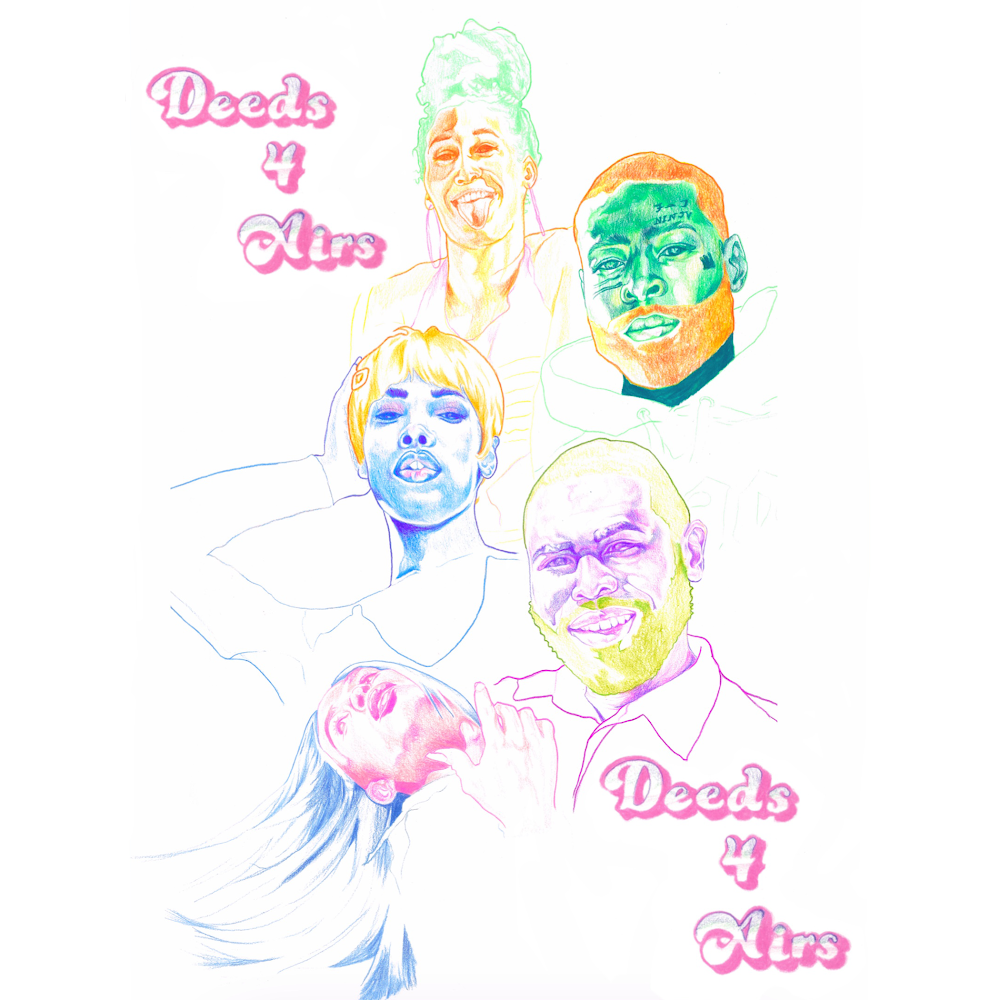Danyele Brown on Deeds for AIRs
Image: Tuere Lawton
By Devin Malone
Assistant Curator of Public Engagement
Deeds for AIRs is a fundraiser by Performance Space New York organized to secure long-term, stable housing for Black and trans artists experiencing houselessness. Performance Space New York’s Artists-in-Residence cohort includes Danyele Brown, Donte McKenzie, Rj Eve Mertus, Stev, and Angel Robertson. Below, artist Danyele Brown contextualizes the fundraiser within her life and work. Learn more and donate here.
How does the work of wealth redistribution inform your practice, and specifically, your performance work?
My work is the voice I use to process and dream through struggle. As a Black transfemme, struggle is a collective reality and work is subversive from the jump, but I could not fathom collective liberation until I was houseless and navigating the shelter system. My little issues couldn’t touch the insurmountable conditions that so many survive at Marsha’s House, but our freedoms were intimately bound by the combined violence of the NYC Department of Homeless Services, the NYC Human Resources Administration, and Project Renewal. Every move I made to escape the system extended a long genealogy of Black trans resistance that I could only manage to archive in relationships. It gave very Miss Major, make-it-happen mamas, no room for allies, no time for strategy, nothing but doing. With individual streams of consciousness, sharing time and space so narrow, that cross-pollination was never optional. I owe my life to this fugitive collectivity and every move I’m making now in “contemporary,” which is to say organized, art, is in pursuit of the same freedom/bag that we were all chasing at Marsha’s. For me, there is no distinction between what I do to live and what I do to art. The work I create is not about getting free, it is literally the freedom process. To be totally honest I have no practice, just an extensive, disorganized list of everything that I’m doing to survive, which includes squeezing institutional connections for a coin. At this point, I have only successfully squeezed institutions as a “performance artist,” so in my organized work, performance is the modus operandi, like a badge of legibility.
In what ways does the Deeds for AIRs fundraiser speak to your broader vision for both community care and self-determination?
The priority for do-gooding should always be long-term stability and wellness for the most marginalized and vulnerable in our communities. Philanthropy and non-profits become agents of the state when they templatize trajectories for wellness and stability. That mode of welfare has always been a guise for surveillance and control. Corporate formulas couldn't begin to comprehend the individual effects of trauma and exclusion. The system is meant to fail so we work outside/steal what we can when we do engage. Philanthropy that aspires to real change needs to feel much more like redistribution, you have to put your money towards work that is truly defined by the most impacted.
What does it look like to prioritize the lives, experiences, and practices of Black trans people, not only in times of scarcity, but in times of abundance?
Miss Major did an interview about the Trans Day of Visibility and she said basically that what y’all need to do is leave trans girls the hell alone. I think about that because so often people that want to be down for Black trans people really just want a show. Real priority from cis folks looks like no fuss reparations, like normalizing pronoun intros without singling out trans/nonbinary individuals, like redistributing wealth to transwomen personally and through organizations like @ForTheGworls and campaigns like Deeds 4 AIRs without the personal satisfaction of having a "trans friend," like calling on the history of Black trans exclusion in every hiring meeting, art panel, or whatever because the shit is real, not because you want to sound radical.
Danyele Brown is a performance and product design artist who seeks to expand a trans-utilitarian practice by merging her artistic backgrounds to build a world of intentionality for trans women’s bodies and experience. Brown is a member of the 2020–21 Dia Education Fellowship cohort.

